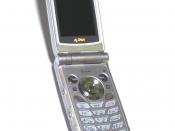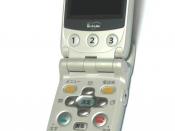The NTT DoCoMo case describes the company's action plan for running the i-mode business and conducting its operations. The case is about strategy: the i-mode product development, its technology and competition, the company's business model, its marketing decisions and plans for the future.
i-mode stands for "information-mode", and it is a mobile phone service which offers continuous Internet access. i-mode was launched in 1999 by NTT DoCoMo -the Japan's leading cellular phone operator- to create a "truly ubiquitous mobile Internet". It was created as a way to ease NTT DoCoMo's wireless traffic congestion by maintaining subscribers growth by introducing a new service. As a result, a new way of using cell phone was created!i-mode has enabled NTT DoCoMo to achieve superior performance in a very competitive industry. It was an explosive success. In just three years, the service has won over 30 million subscribers and in March 2004 the number of i-mode subscribers was 40.5
million representing 59.3 percent of all cellular subscriptions in Japan, making it the most successful mobile data service in the world.
- A radical innovation in the business modelWe cannot read the case without look carefully to the key decisions behind the i-mode launch. Decisions about target market selection, content provision, advertising, price, product design, and technology standards strongly contribute to the successful and quickly diffusion of this disruptive product. Not only a radical innovation in the technological level, but also a radical model of decision making that completely differentiates to the usual Japanese's conservative corporate cultures. While some U.S companies offering similar services were focusing on the business market and the higher-ups at NTT DoCoMo had assumed business was the right target, the decision making team decided to go to the opposite way, targeting young people. They fact that young people are most...


